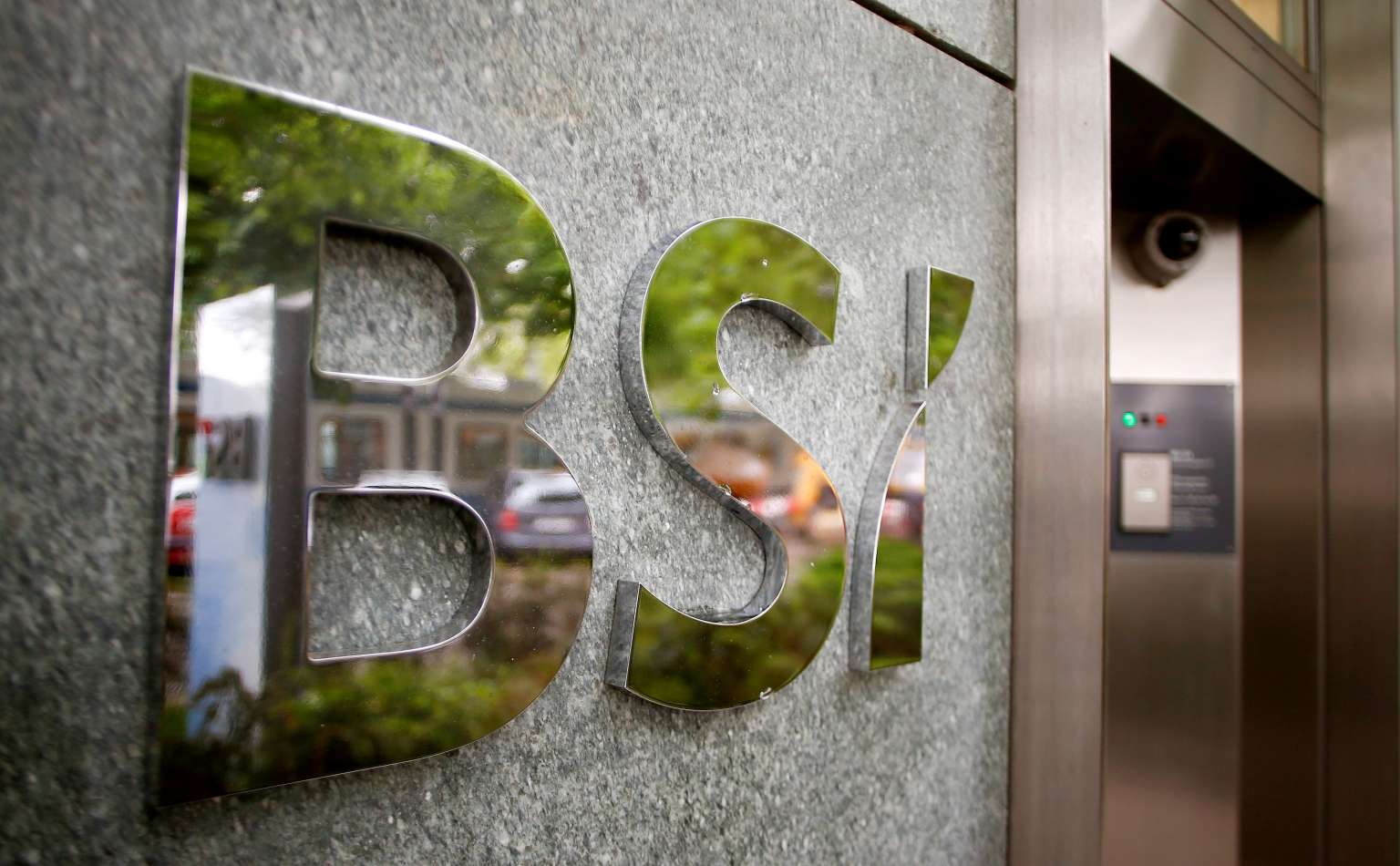BSI: Rise and fall of a century-old Swiss bank
Sign up now: Get ST's newsletters delivered to your inbox

The logo of Swiss bank BSI is seen at a branch office in Zurich, Switzerland on May 24.
PHOTO: REUTERS
SINGAPORE (BLOOMBERG) - In 2010, BSI SA's business in Asia was flying high.
The Swiss private bank had increased its workforce in the region sixfold from the previous year after scooping up a third of RBS Coutts Bank's Singapore employees. Its new Asia chief, Hanspeter Brunner, was planning to capitalize on that expansion by more than tripling assets under management for Asia's rich.
"This is a chance to build the bank that we always wanted to build," Mr Brunner said in an interview in March 2010. On Tuesday (May 24), the business he helped develop came crashing down as Singapore and Switzerland confirmed the bank breached rules against money laundering.
Here is a timeline of the BSI's rise and fall:
May 24, 2016: Singapore's central bank orders BSI's local unit to close, saying five years of inspections turned up "serious shortcomings" and "repetitive lapses" at the private bank ranging from poor due diligence to problems in risk management and internal controls. The Monetary Authority of Singapore also asks prosecutors to look into whether Brunner and other former BSI executives in the city state committed criminal offenses. No word from prosecutors on whether they will bring charges against the officials.
Switzerland's financial watchdog Finma finds that BSI violated rules against money laundering "through business relationships and transactions linked to corruption scandals" surrounding 1Malaysia Development Bhd (1MDB). Swiss attorney general opens criminal proceedings against BSI in connection with the suspected embezzlement of Malaysia's state investment fund.
Finma further authorizes Swiss private bank EFG International to proceed with plans to buy BSI at a reduced price and on condition BSI is dissolved. BSI's chief executive officer, Stefano Coduri, resigns and a board member, Roberto Isolani, is appointed to replace him.
March 2016: BSI says Brunner is retiring from the top job in Singapore. Bank reports that client outflows accelerated in the second half of 2015. Assets under management fell 16 percent to 77.2 billion Swiss francs ($78 billion) at the end of December.
February 2016: EFG agrees to buy BSI from Brazil's BTG Pactual Group for 1.33 billion francs in a deal that will create Switzerland's fifth-largest private bank. EFG says the deal provides protection from 1MDB fallout.
November 2015: BTG Pactual CEO Andre Esteves is arrested in connection with the bribery probe at state-controlled oil producer Petroleo Brasileiro SA. He resigns as the Brazilian bank's bonds collapse, forcing BTG to sell assets to raise cash.
September 2015: Italian insurance group Assicurazioni Generali SpA completes disposal of BSI to BTG Pactual.
June 2015: Finma and Brazil's central bank approve BTG Pactual's acquisition of BSI from Assicurazioni Generali.
March 2015: BSI agrees to pay a US$211 million penalty to resolve a tax probe under a US Justice Department program allowing Swiss banks to avoid charges by detailing their efforts to help Americans evade taxes.
July 2014: Assicurazioni Generali agrees to sell BSI to BTG Pactual in a cash-and-share deal worth 1.5 billion Swiss francs, or $1.7 billion at the time.
October 2011: BSI promotes Coduri, with the bank since 1989, to chief executive officer.
2005: BSI establishes a subsidiary in Singapore.
1998: Generali acquires BSI.
1995: BSI opens an office in Hong Kong.
1873: Banca della Svizzera Italiana is founded in Lugano, part of Switzerland's Italian-speaking Ticino region.


